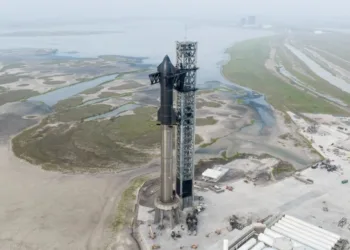According to a recent post on X (formerly Twitter) by SpaceX CEO Elon Musk, the company plans to conduct approximately five uncrewed Starship missions to Mars within the next two years.
Musk indicated that if these uncrewed flights successfully land on the Martian surface, the inaugural crewed mission could potentially be launched as soon as 2028. However, he cautioned that if any obstacles arise, such missions could be delayed by an additional two years due to the optimal windows for travel between Earth and Mars. He stated, “We want to give everyone an opportunity to become space travelers and visit Mars! This includes you, your family, and your friends—anyone who dreams of grand adventures. In the future, there will be thousands of Starships heading to Mars, and it will be a magnificent spectacle to behold! Can you picture it? Amazing!”
It’s important to recognize that Musk’s timelines regarding space ventures frequently shift. Back in 2016, he mentioned plans for a Mars rocket launch as early as 2018, and in 2022, he suggested that Starship might make its inaugural journey to the planet this year.
Musk’s latest remarks follow ongoing anticipation as SpaceX awaits crucial approval from the Federal Aviation Administration (FAA) to move forward with the fifth orbital test flight of the Starship, which consists of the Super Heavy first stage and the upper-stage Starship vehicle.
The FAA is currently assessing the environmental implications of the Starship flights, alongside the safety measures being taken for the upcoming flight. SpaceX has been informed that they cannot proceed until this evaluation is completed. The FAA recently stated that it could take up to the end of November to conclude this process.
In response to criticism from SpaceX regarding the delays, the FAA clarified that SpaceX’s existing license for the fourth test flight allows for multiple flights under the same vehicle configuration and mission profile. However, the agency noted that SpaceX decided to modify both aspects for the proposed fifth launch, which required a more extensive review. They also mentioned that new information submitted by Musk’s company in August indicated that the environmental effects of Flight 5 would encompass a wider area than previously considered, necessitating consultation with other agencies and additional time for the investigation.
Musk expressed his aspiration to establish a human presence on multiple planets “before a critical event occurs on Earth that hinders that potential—be it a nuclear conflict, a supervirus, or societal collapse that diminishes our civilization’s capability to send supplies to Mars.” He attributed delays in the Starship testing program and other significant engineering projects to what he perceives as excessive government regulation.
While Musk’s frustrations regarding the slow pace of the Starship testing program resonate with many, others argue that such regulations are vital for ensuring public safety, adhering to industry standards, minimizing catastrophic risks, and protecting ecosystems.










